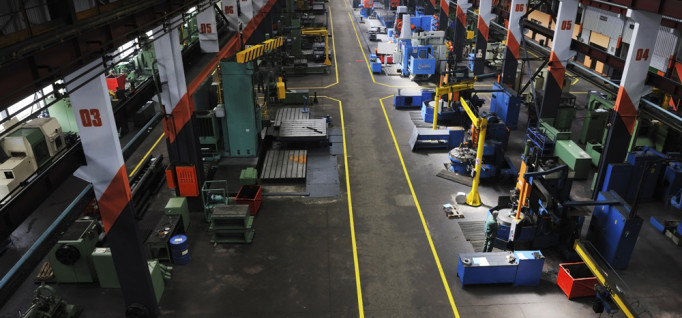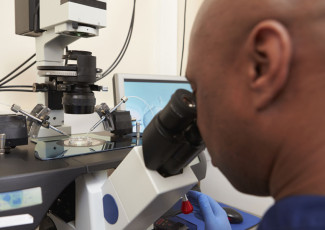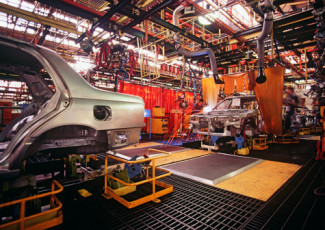Working with Industry to Provide Real-World Training
By Heather Boerner
May 22, 2014
Colleges partner with regional employers to provide facilities and training to meet economic demands.
Industry leaders and community college executives alike worry about the lack of skilled workers, and for good reason. As the economy evolves and technology demands more of manufacturing professionals, there is a palpable need for professionals with advanced knowledge of the latest innovations and processes.
But ramping up skills isn’t quick, easy or inexpensive. Indeed, preparing students for skilled jobs often requires specialized spaces and equipment that may change frequently and can be costly to obtain. To address these issues community colleges are working with industry partners to augment training facilities, either by holding coursework on company grounds or building or augmenting new state-of-the-art training facilities tailored to industry needs.
Here are two models for facilities-based partnerships that benefit colleges, industry and students.
Scaling up
When German chemical company Wacker Polysilicon North America opened a new multimillion-dollar factory in Bradley County in 2011, it needed workers. Chattanooga State Community College (CSCC), meanwhile, had recently purchased an industrial property but didn’t have the funds to outfit it with all the state-of-the-art technology necessary to scale up for the increasingly technological manufacturing jobs coming to the area.
“The challenge is always in resources, people, money and time,” says Lulu Copeland, Chattanooga State’s manager of technical training for engineering technology.
So the college struck a deal: Wacker Polysilicon, through its Wacker Institute, would contribute millions toward turning the industrial space, which is adjacent to CSCC’s main campus, into an industrial training center. In return, the college would train Wacker’s first batch of engineering technicians.
“What we learned was to be open,” Copeland says of the partnership. “We learned to be receptive to industry suggestions and proposals for curriculum.”
The approach paid off: Thanks to its relationship with Wacker, the college now has a top-notch, technology-rich training facility, where it can offer courses designed from the ground up to meet immediate industry needs.
On-site classrooms
As part of the Arizona Get Into Energy Consortium, Pima Community College (PCC) in Tucson offers elementary and electrical math as well as other fundamental courses designed to help students more easily transition into careers with one of the state’s electricity, nuclear or mining power companies.
Participating industry partners, in turn, have agreed to provide hands-on learning opportunities for students at the companies’ production facilities.
“We have classes offered on site at the electrical plant,” says Joanne Kingman, PCC program manager. Employees serve as “adjunct faculty,” essentially teaching hands-on classes in the workplace.
Supporters of the program say the partnerships provide opportunities that no amount of studying can replicate.
“Book theory is book theory,” says Kingman. “Learning in person what a job’s all about and getting specific job skills while in school is something else.”
The agreement is already paying dividends for the college and its partners: PCC gets access to practical experiences and laboratory spaces that can’t be provided on campus, and participating employers get access to a pipeline of students who are ready and willing to work.
Want more examples of effective community college and industry partnerships? Check out this article on AACC’s Community College Daily.













